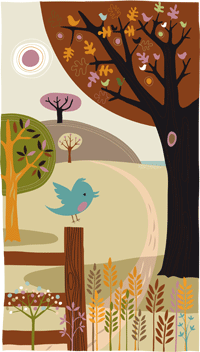Farmers reap business benefits from Twitter

It is often associated with inane celebrity gossip and frequently dismissed as a waste of time. But farmers in the know are turning to Twitter as an increasingly important business tool that gives them the edge over their competitors.
When the government slashed DEFRA’s budget by 30% this autumn, the micro-blogging website – one of the internet sensations of the past year – was soon awash with farmers and industry analysts discussing the implications.
“It is much faster than waiting for something to be posted on a website or published in a magazine,” said Anthony Weston, a farm business consultant with Complete Land Management, Hartfield, Sussex.
“I use it to find out quite quickly what’s going on, what’s new and what’s changing. You can find out instantly what’s coming out of government, rather than waiting for someone to digest it and comment on it before you’ve even seen the raw facts.”
Twitter allows users to post short messages – or tweets – no longer than 140 characters to anyone who wants to read them – a bit like sending a mobile phone text message to everyone in the world. Other people can then reply (see box).
“It comes into its own when you have to find out something here and now,” said Mr Weston. “Using Twitter you can find out from a myriad of people what the latest situation is and their opinion on it – immediately.”
Mr Weston is just one of a growing number of farming-related people to adopt Twitter. As well as exchanging news and views, they are using it to market their businesses and promote agriculture to a wider non-farming audience.
Phil Grooby, of Bishops Farm Partners, belongs to a pea vining group near Boston, Lincolnshire. The group vines about 900 acres of peas each year, harvesting what he describes on Twitter as a “speedy pea”.
“We started using Twitter just to show the consumer what it takes to get peas from the field to the table,” he said. But Twitter is also useful when it comes to setting the record straight and showing people how farmers care for the countryside, he added.
“Since we started, we’ve found it’s a good way of showing the countryside is still alive with birds and wildlife, despite people often thinking farmers are responsible for their decline.”
Heather Gorringe agreed. She studied different forms of social media as part of a Nuffield Farming Scholarship. Farmers need to embrace tools such as Twitter, and use the public’s fascination with all things farming to change opinion, she said (see box).
“Twitter has increased in relevance to lots of people’s lives. Despite the fact it’s called Twitter, which might not be the most sensible of names, it brings communities together and gives opportunities to farmers to speak and reach a wider audience.”
It is easy to use too. One big attraction for farmers is that messages can be posted using a mobile phone, so Twitter can be taken with you. Essex farmer Michael Scantlebury does just that, posting pictures from the comfort of his tractor cab.
“It’s just a bit of fun when sitting on my tractor. My tweets are there for anyone interested in what a modern arable farmer does. I think 140 characters is a challenge but a picture can say more.”
Farmers are building bridges with one another as well as with the general public. They include organic farmer Robert White. Twitter is now an integral part of the salad, vegetable and beef enterprise he runs at Peakhill Farm, Theberton, Suffolk.
“You can reach a far wider audience much faster using Twitter. Initially I thought it would be good to promote what we do and it is true that we’ve increased our customers, but it soon became much more than that.
“Twitter is good for stress relief. We all know that farming can be isolating, but if you are worried about something or need advice, you can soon find someone on Twitter who will give you some encouragement. It’s a problem shared and it cheers you up.”
